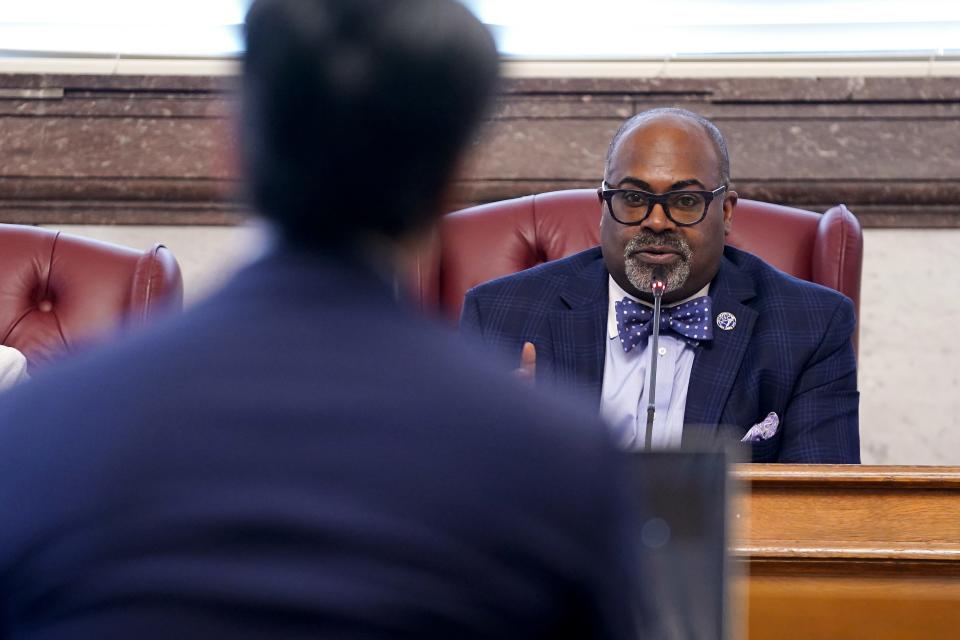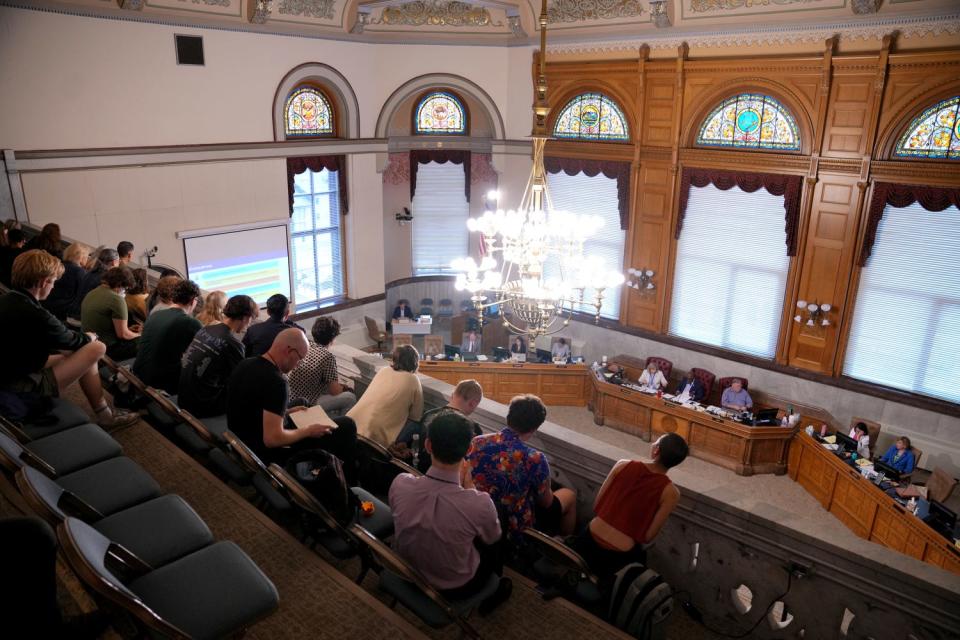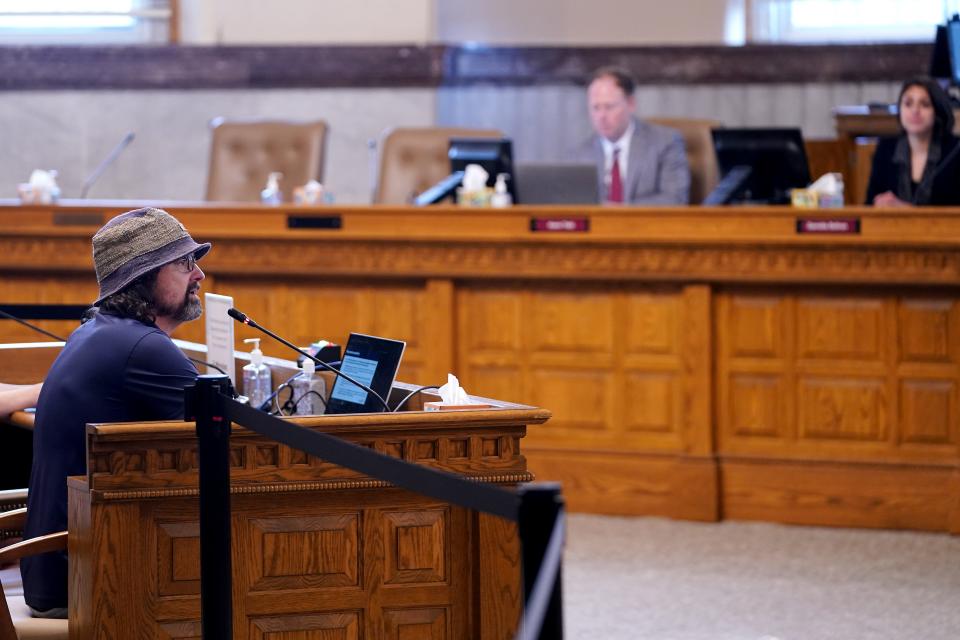Connected Communities: City planning commission approves zoning overhaul
After five hours of public comment, Cincinnati's city planning commission voted 6-0 Friday to pass Connected Communities, a proposal billed as a historic rewrite of the city's zoning code that would allow for more density.
Vice Mayor Jan-Michele Lemon Kearney, who also sits on the seven-member planning commission, abstained from the vote. She questioned how the plan would help create more affordable housing, with Mayor Aftab Pureval firing back that the plan would lower rents because the new code would allow for more rowhomes citywide for first-time homebuyers.
"If we don't make a change, we will only be a city for wealthy people," Pureval said.
That wasn't enough for Kearney.
"I know you all think I'm totally against it and I'm not," she said. "My feeling is Connected Communities, it's a really good start, but there might be input from the community that could make it even better. If we work together with our citizens we could come up with something that actually works."
What is 'Connected Communities?' Why Cincinnatians are worried about this Connected Communities zoning overhaul plan

Dozens spend Friday afternoon at hearing
Affordable housing continued to be a point of contention among the public today. At least 170 people signed up to speak at Friday's planning commission meeting. Chairman Byron Stallworth called the day a "wild ride."
In the end, 84 people held the microphone in person at City Hall or on Zoom. The speakers ended their commentary around 3:23 p.m., with 48 people speaking out against the plan and 36 for it.
Toward the end of the comment period, Mt. Auburn resident Rico Blackman, 26, voiced opposition and noted there were very few Black people among the speakers Friday. The city said it was intentional in gathering the opinions of Black residents because Cincinnati's zoning code has historically segregated led to segregation and displacement, Pureval said.
"Many of our in-person events were in historically Black neighborhoods and disinvested communities," he added. "We do believe all voices matter."
Much of the opposition focused on what the speakers said was lack of engagement, something Pureval has contested. The city's planning department and elected officials spent two years on public engagement, hosting 34 events or meetings as well as personal outreach to community councils from the mayor's office, they say.

Opponents: More engagement needed
That desire for more community engagement is something the most vocal residents have been loud about for weeks. Ever since the draft legislation was released on April 11th, there's been growing backlash from average residents toward the plan. People worry about how the proposal will affect parking in congested business districts, the city's aging infrastructure, and how the city will keep predatory landlords from taking advantage of renters.
More than anything, people said they didn't feel they were being heard by the City. At least nine community councils, which regularly deal with neighborhood zoning issues, formally opposed it. Many remain unsure and want more information, according to The Enquirer's research.
At Friday's planning commission meeting, loud applause could be heard after many of the opposing comments. As speaker and East Hyde Park resident Michael Hauser noted: "You have succeeded in connecting communities ... I don't believe we've ever been so connected."
What's next for Connected Communities.
The planning commission's recommendation to pass Connected Communities means the legislation will be reviewed by city council's budget and finance committee on June 3. It will ultimately need approval from the full nine-member council.

This article originally appeared on Cincinnati Enquirer: Public comment on Connected Communities shows Cincinnati's opposition

